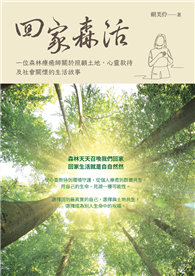Inaccessible Access ethnographically addresses barriers to inclusion within knowledge-making. It focuses on the social, environmental, communicative, and epistemological barriers that people with disabilities confront and embody throughout the course of their learning and living and in the specific context of their higher education institutions and in research. It is presented by a neurodiverse, disabled, and non-cis cohort of authors, all of whom acknowledge a continuum of (in)access that is available to each contributor contingent on their inherent intersectionalities and alterities. The authors and editors of this book foreground the work that has yet to be done on recognizing the value of nonnormative ways of approaching, being in, and knowing research and higher education, particularly in cases where disablity-centered epistemologies are sidelined in confrontation with institutional norms, even within existing discourses concerning equality and alterity.
| FindBook |
有 1 項符合
Inaccessible Access: Rethinking Disability Inclusion in Academic Knowledge Creation的圖書 |
 |
Inaccessible Access: Rethinking Disability Inclusion in Academic Knowledge Creation 出版社:Rutgers University Press 出版日期:2024-11-15 語言:英文 規格:平裝 / 190頁 / 普通級/ 初版 |
| 圖書館借閱 |
| 國家圖書館 | 全國圖書書目資訊網 | 國立公共資訊圖書館 | 電子書服務平台 | MetaCat 跨館整合查詢 |
| 臺北市立圖書館 | 新北市立圖書館 | 基隆市公共圖書館 | 桃園市立圖書館 | 新竹縣公共圖書館 |
| 苗栗縣立圖書館 | 臺中市立圖書館 | 彰化縣公共圖書館 | 南投縣文化局 | 雲林縣公共圖書館 |
| 嘉義縣圖書館 | 臺南市立圖書館 | 高雄市立圖書館 | 屏東縣公共圖書館 | 宜蘭縣公共圖書館 |
| 花蓮縣文化局 | 臺東縣文化處 |
|
|
圖書介紹 - 資料來源:博客來 評分:
圖書名稱:Inaccessible Access: Rethinking Disability Inclusion in Academic Knowledge Creation
內容簡介
作者簡介
KELLY FAGAN ROBINSON is a Leverhulme Early Career Research Fellow and an affiliate lecturer in the Department of Social Anthropology at the University of Cambridge.
MARK T. CAREW is an assistant professor at the International Centre for Evidence in Disability at the London School of Hygiene and Tropical Medicine. He is a coauthor of Disability and Sexual Health: A Critical Exploration of Key Issues and coeditor of Physical Disability and Sexuality: Stories from South Africa. NORA GROCE is the Leonard Cheshire Chair of Disability and Inclusive Development at University College London. She is the author of Everyone Here Spoke Sign Language: Hereditary Deafness on Martha’s Vineyard and a coauthor of Accessible Connecticut: A Guide to Recreation for Children with Disabilities and Their Families.
|











